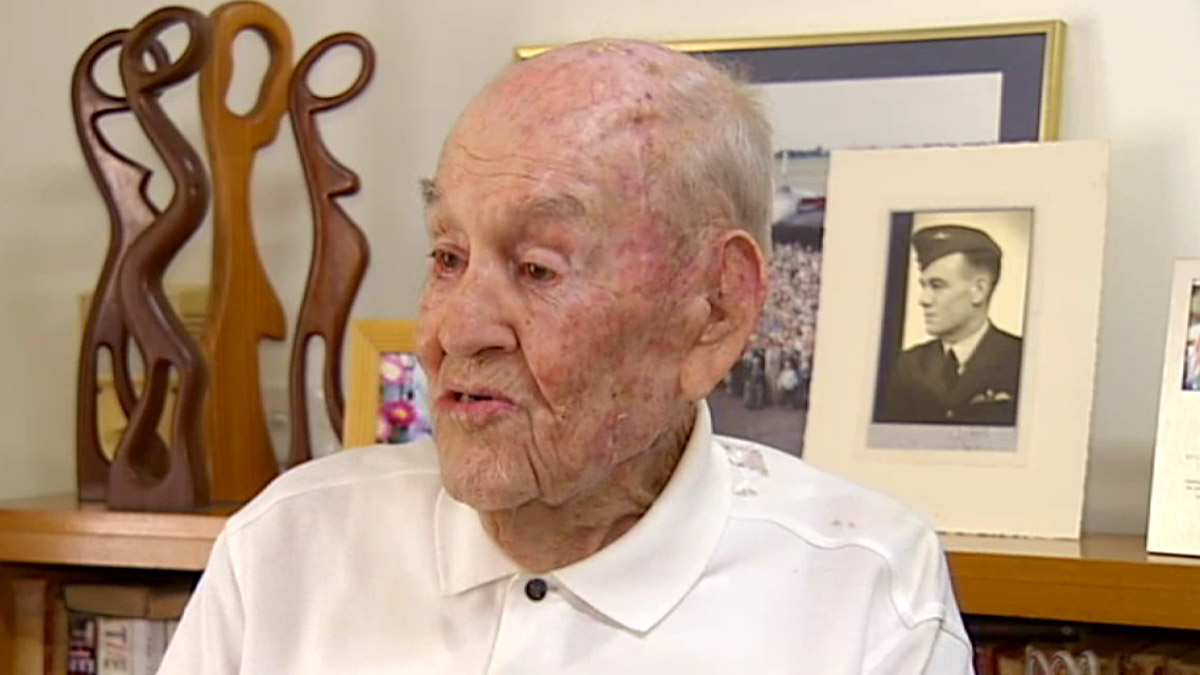Paul Royle: how the 'Great Escape' survivor broke out
As an RAF pilot, Royle tunnelled out of a Nazi prison camp in Poland alongside 75 others in daring escape

A free daily email with the biggest news stories of the day – and the best features from TheWeek.com
You are now subscribed
Your newsletter sign-up was successful
The penultimate survivor of a 76-man group of prisoners who carried out 'The Great Escape', the famous breakout by allied soldiers from a Nazi prison camp in Poland, has died aged 101.
Paul Royle, a former Australian RAF officer, told ABC News last year that he "disliked intensely" the 1963 movie based on the escapade "because there were no motorbikes and the Americans weren't there".
Royle was born in Perth, Western Australia in 1914. After initially working in mining, he joined the RAF and was posted to northern France as a pilot officer in 1938. On 17 May 1940 his aircraft was shot down by the Nazis while on a reconnaissance mission and Royle was taken prisoner in the Stalag Luft III prison in what is now Zagan, Poland.
The Week
Escape your echo chamber. Get the facts behind the news, plus analysis from multiple perspectives.

Sign up for The Week's Free Newsletters
From our morning news briefing to a weekly Good News Newsletter, get the best of The Week delivered directly to your inbox.
From our morning news briefing to a weekly Good News Newsletter, get the best of The Week delivered directly to your inbox.
In prison he became part of the eight-month operation to dig the 110m long tunnel. Royle's specific role in the operation was as a part of a group of prisoners nicknamed 'the penguins' whose job it was to dispose of the soil, hidden in their trousers, around the prison yard. "You'd have to be very careful because the soil from the tunnel was a different colour from the soil on the surface mostly, and you would get a suitable place to put it where there was similar soil," he later explained.
On the night of 24 March 1944, he and Flight Lieutenant Edgar Humphreys paired up to get through the narrow tunnel and set off towards Switzerland. Despite evading capture for two nights, the two men were eventually caught and returned to the prison camp. While Royle was placed in solitary confinement, Humphreys ended up being one of the 50 prisoners executed on the orders of Adolf Hitler.
According to The Guardian, the Australian remained mystified as to why Humphreys was killed and he was not, telling reporters in 2004: "There's no reason why one should live and not the other. Rationality didn't come into it. I haven't a clue as to why I wasn't chosen."
As the war came to a close, Royle was eventually liberated by British troops on 2 May 1945 and returned to Australia where he went back to working in the mining industry in later life.
A free daily email with the biggest news stories of the day – and the best features from TheWeek.com
Despite his hero status in his homeland, Royle was always keen to downplay the significance of his exploits telling ABC News that he didn't think he did anything extraordinary.
"Oh, I don't think so. Most people have extraordinary lives if they think of it," he said. "While we all hoped for the future we were lucky to get the future. We eventually defeated the Germans and that was that."
The Australian's death means British squadron leader Dick Churchill is now the sole survivor from the group of 76 'Great Escapees'. A memorial service for Royle will be held at Karrakatta cemetery in Perth on 2 September.
-
 The environmental cost of GLP-1s
The environmental cost of GLP-1sThe explainer Producing the drugs is a dirty process
-
 Greenland’s capital becomes ground zero for the country’s diplomatic straits
Greenland’s capital becomes ground zero for the country’s diplomatic straitsIN THE SPOTLIGHT A flurry of new consular activity in Nuuk shows how important Greenland has become to Europeans’ anxiety about American imperialism
-
 ‘This is something that happens all too often’
‘This is something that happens all too often’Instant Opinion Opinion, comment and editorials of the day
-
 Epstein files topple law CEO, roil UK government
Epstein files topple law CEO, roil UK governmentSpeed Read Peter Mandelson, Britain’s former ambassador to the US, is caught up in the scandal
-
 Iran and US prepare to meet after skirmishes
Iran and US prepare to meet after skirmishesSpeed Read The incident comes amid heightened tensions in the Middle East
-
 Israel retrieves final hostage’s body from Gaza
Israel retrieves final hostage’s body from GazaSpeed Read The 24-year-old police officer was killed during the initial Hamas attack
-
 China’s Xi targets top general in growing purge
China’s Xi targets top general in growing purgeSpeed Read Zhang Youxia is being investigated over ‘grave violations’ of the law
-
 Panama and Canada are negotiating over a crucial copper mine
Panama and Canada are negotiating over a crucial copper mineIn the Spotlight Panama is set to make a final decision on the mine this summer
-
 Why Greenland’s natural resources are nearly impossible to mine
Why Greenland’s natural resources are nearly impossible to mineThe Explainer The country’s natural landscape makes the task extremely difficult
-
 Iran cuts internet as protests escalate
Iran cuts internet as protests escalateSpeed Reada Government buildings across the country have been set on fire
-
 US nabs ‘shadow’ tanker claimed by Russia
US nabs ‘shadow’ tanker claimed by RussiaSpeed Read The ship was one of two vessels seized by the US military